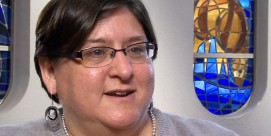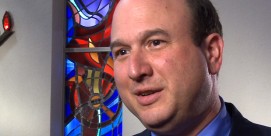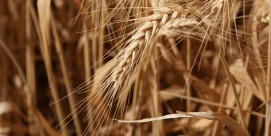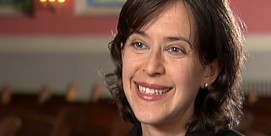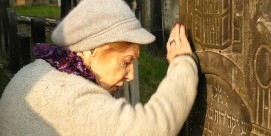Words for Yom Kippur
Mahzor Lev Shalem, the new High Holy Day prayer book of Conservative Judaism, includes for the first time a rich assortment of contemporary readings and meditations, poetry and prayers. These selections are among the readings meant for use on Yom Kippur, the Day of Atonement.

One day a year we make a journey in the company of the whole community of Israel—all of us together, each of us alone. That day is “The Day,” the Day of Atonement, the day that is deathlike. It is the day we wear the kittel, the white gown that will one day be our shroud. It is the day when eating and drinking cease. It is a day when the world recedes and we are set free to uncover the true meaning of our lives.
—Jonathan Magonet, British rabbi and theologian
![]()
Faith is not something that we acquire once and for all. Faith is an insight that must be acquired at every single moment. Those who honestly search, those who yearn and fail, we did not presume to judge. Let them pray to be able to pray, and if they do not succeed, if they have no tears to shed, let them yearn for tears, let them try to discover their heart, and let them take strength from the certainty that this too is prayer.
—Abraham Joshua Heschel (1907-1972), rabbi and theologian
![]()
Emotions ebb and flow throughout these holy days. Paradoxes swim in the stream of prayer. At one moment, we believe our deeds to be of such import that the world stands still so that we may take account of them. At another moment, we imagine ourselves so small, so insignificant that our lives are like a passing breath. We are great; we are small. We are the center of the universe; we are nothing at all. And yet, not matter how large we imagine our sins to be, and no matter how puny we imagine ourselves to be, God will never forsake.
—Nina Beth Cardin, rabbi and director of the Baltimore Jewish Environmental Network
![]()
I am grateful for this, / a moment of truth, / grateful to stand before You / in judgment. / You know me as a liar / and I am flooded with relief / to have my darkest self / exposed at last. / Every day I break my vows— / to be the dutiful child, / selfless parent, caring friend, / responsible citizen of the world. / No one sees, no one knows / how often I take the easy way, / I let myself off the hook, / give myself the benefit of / the doubt— / every day, every day. / On this day, this one day, / I stand before You naked, / without disguise, without / embellishment, naked, /shivering, ridiculous. / I implore You— / let me try again.
—Merle Feld, poet, playwright, activist, and educator
![]()
Most of us prefer to deny the unruliness of our fragility. But the facts … are inescapable: some will get sick; some will be born; there will be deaths by hunger and in wars. The liturgy begs us to pay attention to these plain facts. And we all know that if we haven’t yet suffering an unbearable loss, one year, such a grief will permanently scar our hearts, or we will suffer yet another death that we cannot bear. We hope that we will live to see another year, but we know that without a doubt, certainly, definitely, and absolutely, a year will surely come that will break the pattern. That destiny is mysterious in its details, but death is our destiny, the fate of every person we know and love. Everyone dies, somehow and some time. We are not praying to be spared an ending in death. We are not even asking that death be postponed. Rather, after reminding ourselves relentlessly of the many ways that life might end, we tell ourselves that the way to come with ultimate vulnerability is through t’shuvah, t’fillah, and tz’dakah [repentance, prayer, and charity]. Our goal is not security but a life of meaning that recognizes our vulnerability but rises beyond it.
—Leonard Gordon, rabbi of Congregation Mishkan Tefila in Chestnut Hill, Massachusetts
![]()
Each morning You restore consciousness to my sleep-filled body, and I awake. Each spring You restore vitality to trees, plants and animals that have hibernated through the winter, and they grow once more. Each day I remember those who have died; they live on beyond the grave. Each moment I contemplate the rebirth of our people; I recall that You put the breath of life into dry bones. Praised are You, Adonai, for planting immortality in my soul, in my people, and in our world.
—Robert Scheinberg, rabbi of the United Synagogue of Hoboken, New Jersey
![]()
For 25 hours we have prayed from our hearts and minds on the Day of Atonement. Now that evening approaches and the long fast draws to a close, tens of thousands of words must have been spoken and sung. And yet somehow we still feel that we have not penetrated to the heart of the matter; there are further unspoken feelings buried in us and interior courts in God’s palace which we have not yet entered. Therefore, we must muster the remaining physical and spiritual forces left under our command, and make one last desperate effort to descend into the human depths and to climb to the divine heights. But words have earlier proved futile. We cry out the Sh’ma—we repeat “praised be the name of the One whose glorious sovereignty is forever and ever” three times—and we stammer, each time at a higher and, as it were, more urgent pitch seven times the Hebrew words: “Adonai is God.” No longer is it the meaning of the words but rather their rhythm, the scream of the soul that squeezes through them, the hammering of their insistent repetition, in which we place our hope. And as if even this last resort had failed, finally we abandon the human voice and verbal expression altogether. We reach for the shofar and blow one long, piercing shriek: t’kiah g’dolah. This surely must rend the heavens!
—Steven S. Schwarzschild (1924-1989), rabbi, philosopher, theologian, editor


